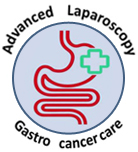Advanced Laparoscopy
What is GI surgery?
GI surgery, otherwise called Surgical Gastroenterology is a superspeciality dealing with diseases of the abdominal organs, mainly involved in nutrition and digestion of food which may require surgical management most of the times. M.Ch /DNB (Surgical gastroenterology) are the courses recognized by Medical Council of India for this superspeciality and can be registered with them. As eating a normal diet with a good digestion is essential for everyone, even non critical diseases require a proper diagnosis and treatment.
Why to consult GI surgeon / Surgical Gastroenterlogist?
The 3 year rigorous training involved in the course focuses only on the disorders of the digestive (Gastrointestinal) system. Hence they are very experienced in dealing with them as they are well-versed in their presentation, diagnosis and treatment. They are actively involved in the surgical procedures in large numbers pertaining only to the abdomen and manage them postoperatively. They recognize and manage complications early, if arise, as they have the immaculate capacity to identify and treat them.
When to consult a GI specialist?
The common symptoms which may require a consultation of GI surgeon are
- Abdominal pain
- Indigestion / Reflux of food
- Recurrent Vomiting / blood vomiting
- Abdominal bloating or distension
- Any swelling in the abdomen / groin
- Jaundice
- Blood / mucus in motion
- Altered bowel habits (Constipation / Diarrhoea)
What is a hernia?
A hernia occurs when an organ or fatty tissue squeezes through a weak spot in a surrounding muscle or connective tissue called fascia. For example, the intestines may break through a weakened area in the abdominal wall. Hernias are most common in the abdomen spontaneously (ventral) or after surgery (incisional) but they can also appear in the groin area( inguinal), belly button(umbilical), and upper thigh( femoral). Most hernias aren't immediately life-threatening, but they don't go away on their own. Sometimes they can require surgery to prevent potentially dangerous complications.
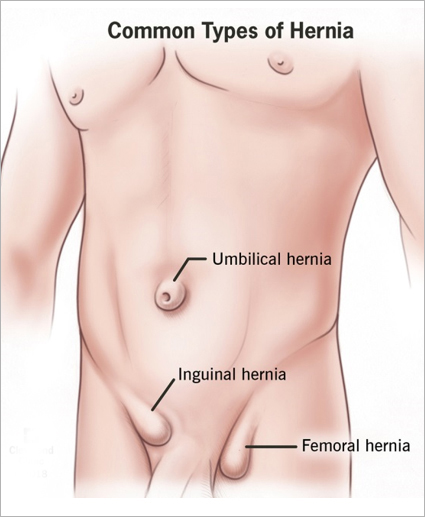
In an inguinal hernia, the intestine or the bladder protrudes through the abdominal wall or into the inguinal canal in the groin. About 96% of all groin hernias are inguinal, and most occur in men because of a natural weakness in this area.
In an incisional hernia, the intestine pushes through the abdominal wall at the site of previous abdominal surgery. This type is most common in elderly or overweight people who are inactive after abdominal surgery.
What Causes Hernias?
Ultimately, all hernias are caused by a combination of pressure and an opening or weakness of muscle or fascia; the pressure pushes an organ or tissue through the opening or weak spot. Sometimes the muscle weakness is present at birth; more often, it occurs later in life.
Anything that causes an increase in pressure in the abdomen can cause a hernia, including:
- Lifting heavy objects without stabilizing the abdominal muscles
- Diarrhea or constipation
- Persistent coughing or sneezing
In addition, obesity, poor nutrition, and smoking, can all weaken muscles and make hernias more likely.
Symptoms
The most common symptom of a hernia is a bulge or lump in the affected area. In the case of an inguinal hernia, you may notice a lump on either side of your pubic bone where your groin and thigh meet. You're more likely to feel your hernia through touch when you're standing up, bending down, or coughing. The occurrence of pain or presence of a persistent bulge in spite of lying down and pushing it back can be symptoms of complications.
Treatment
If your hernia is growing larger or causing pain, your doctor may decide it's best to operate. Most of the hernias except small asymptomatic ones require surgical correction .This is most commonly done by patching the hole with surgical mesh.
Hernias can be repaired with either open or laparoscopic surgery. Laparoscopic surgery uses a tiny camera and miniaturized surgical equipment to repair the hernia using only a few small incisions. Laparoscopic surgery is less damaging to the surrounding tissue. Open surgery requires a longer recovery process compared to laparoscopic surgery . However, not all hernias are suitable for laparoscopic repair.
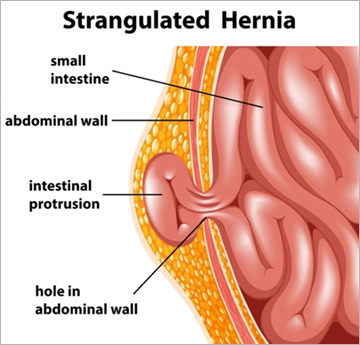
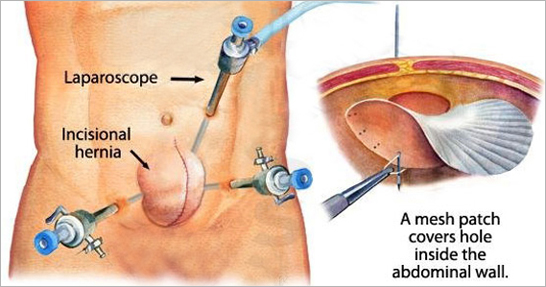
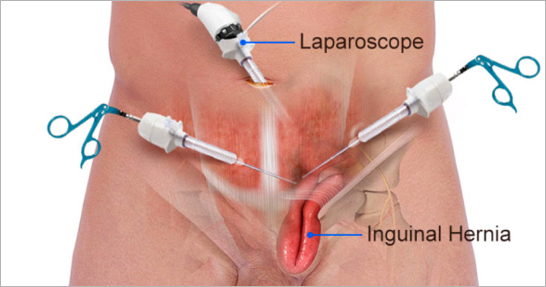
Content will be available soon...
Content will be available soon...
Content will be available soon...
Content will be available soon...
Content will be available soon...
Content will be available soon...
